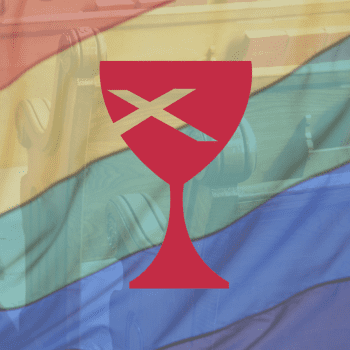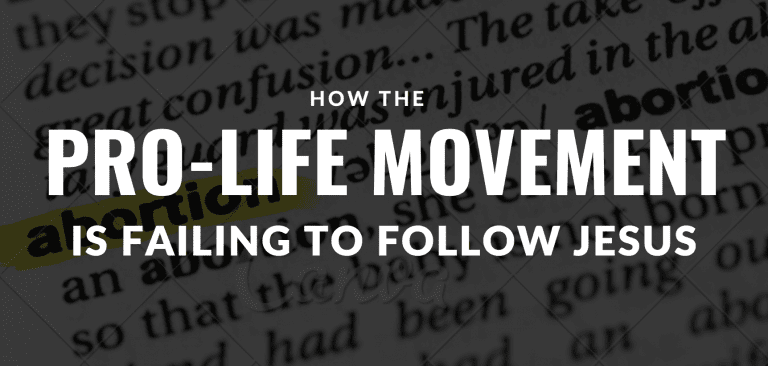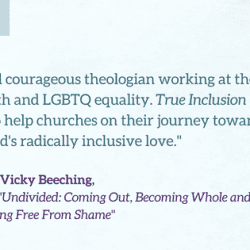Post by: Christian Stackaruck, Theological Contributor
In recent years, theology has garnered a very popular reputation as being dead. In fact, more people probably believe that Elvis is alive and well than the study of theology. As a student of theology I have come to know this quite well. When asked by Christians what I study I now say, “ministry,” and when speaking with non-believers I say, “ancient Near Eastern languages and religious systems.” In the instance of the latter, I do not sound much more employable, but I definitely seem more interesting (thus, why it stuck).
than the study of theology. As a student of theology I have come to know this quite well. When asked by Christians what I study I now say, “ministry,” and when speaking with non-believers I say, “ancient Near Eastern languages and religious systems.” In the instance of the latter, I do not sound much more employable, but I definitely seem more interesting (thus, why it stuck).
Yes, theology can be dead, much like other fields of study. The true shame is that theology is the study of the most life giving and transforming truths. One would not think that an eternally risen Christ could be killed so easily. But, as with other matters, this is a story for another day.
The real issue arises when dead theology wraps its cold fingers around the Bible and takes it down with it. Picture the belrog in The Fellowship of the Ring dragging Gandalf down with him. Nothing less than a tragedy.
But its true, many Christians, who have, for themselves, killed theology (a momentously tragic achievement), will execute the Bible upon the very same gallows.
The Bible is where God speaks. I don’t want to argue for, against, or about any of the big “I’s:” inspiration, inerrancy, infallibility, etc. Most Christians, mainline and Evangelical, will admit that the Bible is where God speaks. That’s exciting! Its incredible actually. We meet God in the Scriptures. The Scripture is where we come with all that we are: our passions, our problems, our prayers, and get to hear something fresh from God. Something life-giving. Its kind of like Jesus: bringing good news, freedom, a large ring of keys to unshackle those parts of us red from tugging at life’s shackles. What a beautiful thing.
Theology is something we do with what God says in the Scriptures, something mostly responsible and life giving. Theology answers questions about the Bible. To reuse the metaphor of the Bible like a ring of keys, theology is the man who tells you what key to use, what the keys do, where the key is.
So here it is, how Christians will kill the amazing work of God’s Word with their own (self-inflicted) cold, dead, theology:
1. Showing up at the Bible with predetermined theology: Going to Scripture only to hear something we already know. No new messages, no fresh words, no life change! This person has “hermeneutical strategies” for all the hard passages and well-rehearsed excuses for all the difficult things in the Bible. Like the girl who repeatedly turns down a prospecting man’s date invitations, eventually he will stop asking. Eventually Scripture stops speaking new things, new life. Ask yourself: when’s the last time you let the ethical challenges of the Sermon on the Mount challenge you? How has your theology quieted the “untamed lion” of God’s Word?
2. Christians, especially Christians in ministry, will read the Bible to only find certain theological answers: One of the greatest challenges of teaching people to read the Bible is showing them how it is meant to be read. I’m talking about encountering God through the literary richness of the mysteriously divine-human text. Words like story, poetry, beauty, lament, contrite, justice. The Bible answers questions, yes, but it also presents questions and answers that you won’t ask, that you don’t want to ask, and that you need to be asking. I find that seminary students are more like theological bomb-makers in training today. Filled to the brim with a certain theological system, students want to learn to get their “mind-blowing” theology into deliverable sermons. Practical? Yes. Fully representative of Scripture? No chance. Ask yourself: do you approach Scripture only to answer questions or to craft a preconceived sermon?
3. Assuming the Bible teaches only one system of theology: This is where the Bible quickly stops being something that unites, but only divides. Yes, the author (essentially) only holds one primary and accessible message. No, there is not only one orthodox way of understanding and applying the Eucharist, baptism, justification the spiritual gifts, worship, and the end times. There is room for great diversity on these issues and within the body of Christ. In this way pastors and teachers will arrive at a passage, seek its one meaning, call it orthodox, and alienate themselves from the diverse Christian church as well as the way the Scriptures are meant to challenge us day by day.
I pray that theology will continue be a craft that blesses the church and ignites believers to live out God’s word in Jesus’ kingdom in powerful ways. I pray that theology continues to faithfully answer questions in ways that speak the morning light of life into the hearts and minds of a grieving world. The cerebral task of theology can be distracting from the heart, mind, hands encounter found in the Bible. May we cease to strangle the life out of the Scriptures with our theology and may we allow the Bible to keep speaking to us, opening ourselves to hear from God in fresh ways, beyond our rigid, predetermined theology.
Christian Stackaruck- Chris is an evangelical writer and thinker driven by a commitment to see Evangelicals renewed and rejuvenated in their mission through helpful discussion and progressive dialogue. Chris works as a theological education consultant and writer and is a graduate of Moody Bible Institute with a BA in biblical languages. He is also currently pursuing his MA in Theology at Wheaton College Graduate School. Chris loves to read and write about Evangelical theology, world religions, ecumenism, and global missions. Chris spends most of his time in the three places he and his wife call home: Toronto, Chicago, and Northern Thailand. While not crunching theology textbooks Chris enjoys traveling with his wife, eating foreign food, and reading broadly about history and religion.











